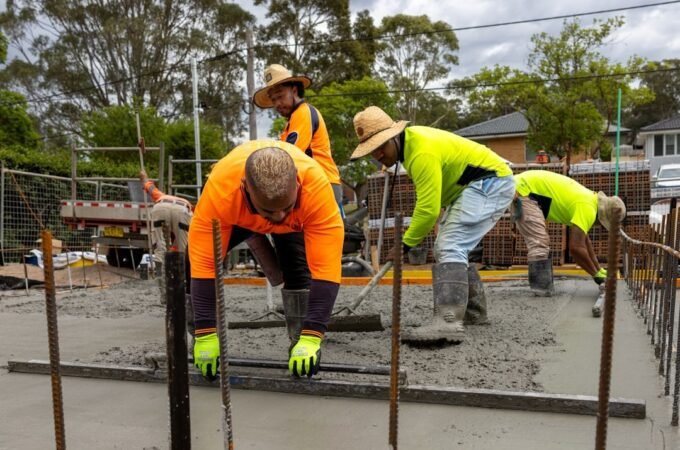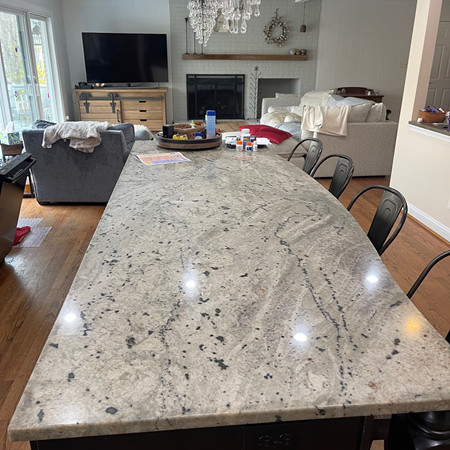
Warning Signs It’s Time for Home Foundation Repair in Ann Arbor
Never put off needed home foundation repair in Ann Arbor! Avoiding needed repairs allows damage to get worse, with cracks spreading and getting deeper along foundation concrete. A home with a weak or cracked foundation might also suffer secondary damage, such as framing rot and mold growth.
To ensure you’re keeping your property in pristine condition and that it’s in good repair, check out these warning signs that it’s time for home foundation repair. You can then discuss these signs with a foundation repair contractor near you as needed, and know your home is always sitting on a strong, stable foundation.
Table of Contents
Toggle1. Exterior Cracks and Home Foundation Repair in Ann Arbor
Not all exterior cracks mean that it’s time for foundation repairs. Concrete often suffers small, hairline cracks as it cures completely, and as it expands in humid weather. You might notice these cracks forming along fresh concrete around your property, and they don’t usually indicate structural issues.
However, cracks in a zigzag pattern or those large enough to insert a coin into often mean that it’s time for foundation repairs! At the very least, schedule a full inspection and have the foundation evaluated, so you know if those cracks are serious enough to require patching and waterproofing, or if it’s even time for full-scale house leveling.
2. Interior Wall and Ceiling Cracks and Foundation Damage
Cracks along drywall or sheetrock aren’t always a sign of needed foundation repair. Poor-quality drywall installation, as an example, can allow those panels to shift and pull to one side over time, resulting in cracks. Plaster also tends to crack as it gets older, as a normal part of the aging process; water damage also softens drywall and plaster, allowing these materials to crack.
While interior wall and ceiling cracks don’t necessarily indicate the need for foundation repairs, they are a common sign that a foundation has weakened and a home has settled or shifted to one side or the other. As the home settles, it pulls on drywall panels, resulting in cracks. If your home’s walls or ceilings are showing cracks and you’ve ruled out all other causes, schedule a foundation inspection!
3. Check Your Doors and Windows for Needed Foundation Repair
As a home settles on a weak foundation and begins to sag along one side or the other, it will then pull door and window frames out of proper alignment. As this happens, doors and windows might begin to stick, while doors can also swing open on their own.
You might also notice those frames pulling away from the home’s structure, creating gaps inside or outside the home. Door and window locks might also stick, or you might struggle to close them securely. These are all indicators that you need home foundation repair in Ann Arbor!
4. Flooring Issues and Foundation Repair
A shifting and settling home also pulls on interior flooring! When the home’s subfloor cracks or weakens, floors under you might feel “bouncy” or start to creak, squeak, and groan when you walk across them. You might even feel what seems to be weak spots along the floor.
Pulling on tile and hardwood planks can allow them to buckle or pop out of position. Tiles and planks might even feel loose underfoot. Rather than just repairing the floors themselves, have the home inspected for potential foundation damage.
5. Mold and Water Damage Can Indicate Foundation Cracks
Foundation cracks allow moisture into the home. Wood framing, drywall, and other building materials then absorb that moisture, leading to softened or rotted wood, cracked surfaces, and unsightly stains. Wood framing might begin to bow or lean under the home’s weight, risking even more cracks along walls and ceilings.
Trapped moisture also means mold growth! This mold often appears first behind walls but might then spread to the front of drywall or along baseboards. You might also notice mold and mildew underneath carpeting or growing on fabric items stored in a home’s basement or back rooms.
While plumbing leaks, roof cracks, and other damage can let in moisture that results in wood rot and mold, it’s vital that you schedule a foundation inspection along with inspecting other areas of the home. Rot and mold only get worse the longer they’re ignored, and can also mean costly repairs.
6. Foundation Damage Can Mean Unpleasant Odors in the Home!
Wood rot, mold, and mildew can all mean unpleasant odors in the home. These odors are often strongest in the basement or lower levels, but you might also notice them along a home’s first floor. Musty odors can also be trapped in items stored in the basement or back rooms where mold grows fastest.
Never assume that basements, laundry rooms, storage rooms, and other areas of the home are just naturally damp and musty, or that the home needs more fresh air to get rid of those smells! Instead, consider an inspection for mold growth and foundation cracks that need repairs.
7. Broken Exterior Stairs Can Mean Foundation Damage!
Exterior stairs are typically attached to a home’s porch or exterior walls, rather than simply sitting outside the home on their own. If the home’s foundation settles or shifts in any direction, it can then pull those steps the same way it pulls on interior walls and floors.
Cracks along exterior steps are the result of many issues, including poor-quality construction, concrete that needs sealing, and just plain age. However, as with all these issues, it’s helpful to schedule a foundation inspection for your home if you notice cracked stairs, risers pulling away from the home, uneven stairs, and other such issues.
8. How Old Is the Foundation?
Older foundations don’t always crack or chip; high-quality foundation materials can last for decades if not indefinitely without needing repairs. However, if your home’s foundation is more than 10 years old, and especially if it’s 20 or 30 years old, it’s time for an inspection! Over time, moisture and everyday wear and tear can break down foundation materials so they’re more likely to suffer cracks and weakening.
A homeowner might also consider that regular inspections, no matter the home’s age or condition, can alert you to needed home foundation repair in Ann Arbor before damage becomes extensive and wood rot and mold set in. A foundation repair contractor can also tell you if the foundation is in good condition, so you can rest assured that your home is sitting on a strong, stable foundation!
Mark Ligon is the Marketing Manager at a leading e-commerce store in plumbing supply. Mark focus is on DIY projects and providing creative and practical advice to individuals looking to complete DIY projects of their own






